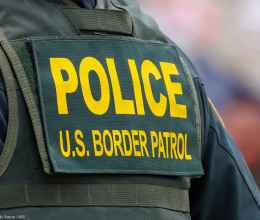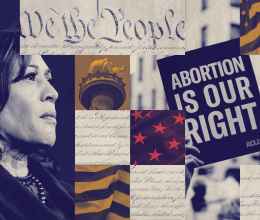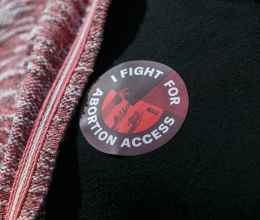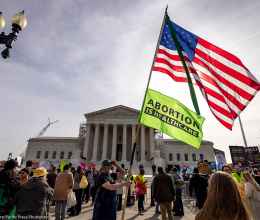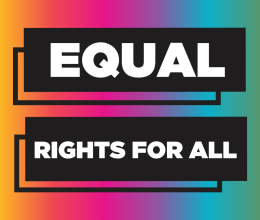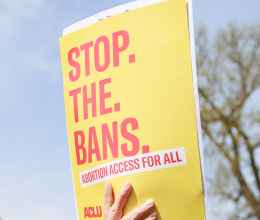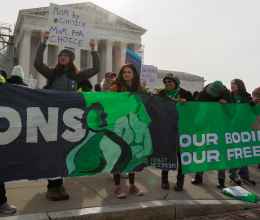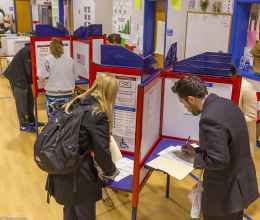
Over the last decade, California has built up some of the nation’s strongest driver privacy protections, thanks to the hard work of activists, civil rights groups, and elected leaders.
One law in particular, often called SB 34, prohibits police from circulating detailed maps of people’s driving patterns with the federal government and agencies in other states– a protection that has only grown more important with the end of Roe v. Wade and the subsequent surge in abortion criminalization.
But dozens of California police departments have decided to defy the law, even after receiving clear guidance from California Attorney General Rob Bonta, the chief law enforcement officer in the state. Last month the ACLU of Northern California and our partners sent Attorney General Bonta a letter listing 35 police agencies that have refused to comply with the law and protect driver privacy.
We should all be able to drive to a doctor’s office, place of worship, or political rally without being tracked and cataloged by police agencies. But for years now, police have used automated license plate readers (ALPRs) to record and track the movements of drivers on a previously unseen scale. These systems allow police to collect and store information about drivers whose cars pass through ALPR cameras’ fields of view, which, along with the date and time of capture, can reveal sensitive details about our movements and, as a result, our private lives.
The ACLU has long seen the danger ALPR surveillance poses, and working alongside communities on the ground, has fought to bolster California’s legal protections for driver privacy. For over a decade, we have conducted investigations, advocacy, and litigation focused on how police agencies use ALPR to track law-abiding drivers, amass hordes of sensitive information, and use it to harm people.
In the wake of ACLU’s groundbreaking report on ALPR across the US, we called out police use of ALPRs in 2013 as a threat to driver privacy and warned that California lacked statewide driver privacy protections. In 2016, thanks in part to the advocacy of the ACLU and allies, the California legislature passed SB 34, the law at issue today. In 2019 we discovered Immigration and Customs Enforcement’s (ICE) exploitation of ALPR-collected information to track and target immigrants in California and across the United States.
From there, we took action to enforce California’s driver privacy protections. In 2021 we sued Marin County, California for illegally sharing millions of local drivers’ license plates and locations with federal and out-of-state agencies, including ICE. The sheriff eventually agreed to comply with SB 34 as part of a settlement agreement, but we believed that many other California police agencies were still violating SB 34.
We rang the alarm again in the wake of the Dobbs decision overturning Roe v. Wade. Alongside our partners at the Electronic Frontier Foundation and ACLU of Southern California, we sent letters to over 70 law enforcement agencies in California demanding they stop sharing people’s driving patterns with states that have criminalized abortion care. We also notified the attorney general’s office of these violations.
Following our letters, the attorney general issued instructions to police across the state to follow SB 34’s plain text and cease sharing license plate information with state and federal agencies outside California. While some agencies have come into compliance, many police are digging in and refusing to follow the law. Police lobbyists have even asked the attorney general to withdraw his interpretation of the law.
Simply put, the position touted by police agencies and their lobbyists puts Californians at risk. SB 34 is important because when police track and share the locations of law-abiding drivers, that information can easily be used to facilitate racist policing, punitive fees, and the discriminatory targeting of people in California and beyond. And, as our letters warned, when California shares ALPR information with authorities in states with anti-abortion or anti-trans laws, police and prosecutors gain new power to track and prosecute people who traveled to California to receive reproductive or gender-affirming care.
We should all be able to travel safely on the state’s roads without our movements being handed to authorities outside the state. That is why we have continued to push California police agencies to follow California’s driver privacy law. And it’s why we have supported localities that reject ALPR programs at odds with their values.
It is unacceptable that police agencies charged with enforcing laws are refusing to comply with this one. While we are pleased with Attorney General Bonta’s strong statement on SB 34, we urge the attorney general to use all available means at his disposal to ensure compliance. And rest assured, that the ACLU will continue fighting to enact and enforce protections that keep all of us safe, no matter where we go in the state.
This article was originally featured on the blog of the ACLU of Northern California.

